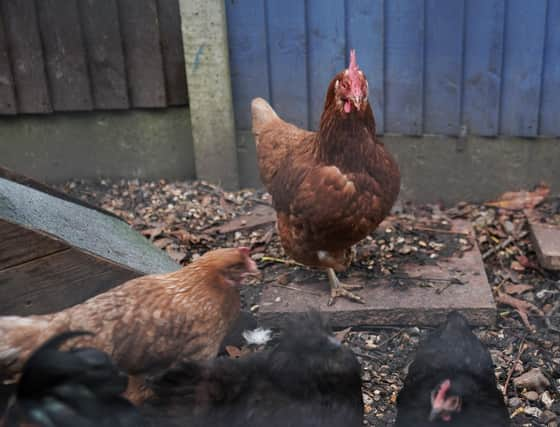Scots scientists explore gene-editing of chicken DNA to limit spread of bird flu


Scientists have used gene-editing techniques to identify and change parts of chicken DNA that could limit the spread of the bird flu virus, which has decimated seabird populations and cost the poultry industry more than £100 million in losses.
Researchers at the University of Edinburgh, Imperial College London and the Pirbright Institute bred chickens using gene-editing techniques to alter the section of DNA responsible for producing the protein ANP32A.
Advertisement
Hide AdAdvertisement
Hide AdDuring an infection, flu viruses hijack this molecule to replicate themselves.
Scientists found that when the ANP32A gene-edited chickens were exposed to a normal dose of the H9N2-UDL strain of avian influenza virus – commonly known as bird flu – nine out of 10 birds remained uninfected and there was no spread to other chickens.
The research team then exposed the gene-edited birds to an artificially high dose of avian influenza virus to further test their resilience.
When exposed to the high dose, half of the group – five out of 10 birds – became infected.
But the gene edit did provide some protection, with the amount of virus in the infected gene-edited chickens much lower than the level typically seen during infection in non-gene-edited chickens.
The gene edit also helped limit the onward spread of the virus to just one of four non-gene edited chickens in the same incubator.
There was no transmission to gene-edited birds.
Professor Mike McGrew, from the University of Edinburgh’s Roslin Institute and the study’s principal investigator, said: “Bird flu is a great threat to bird populations.
“Vaccination against the virus poses a number of challenges, with significant practical and cost issues associated with vaccine deployment.
Advertisement
Hide AdAdvertisement
Hide Ad“Gene-editing offers a promising route towards permanent disease resistance, which could be passed down through generations, protecting poultry and reducing the risks to humans and wild birds.
“Our work shows that stopping the spread of avian influenza in chickens will need several simultaneous genetic changes.”
Comments
Want to join the conversation? Please or to comment on this article.